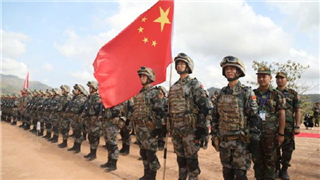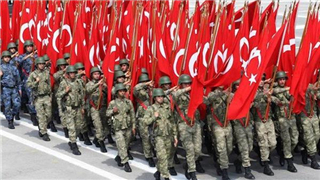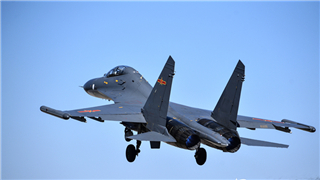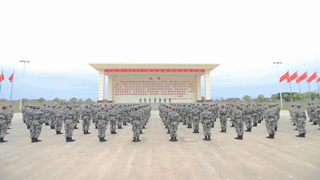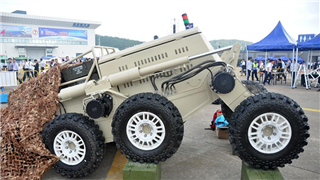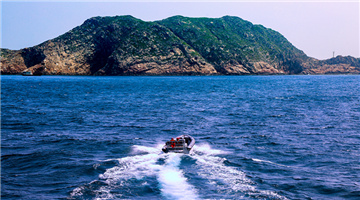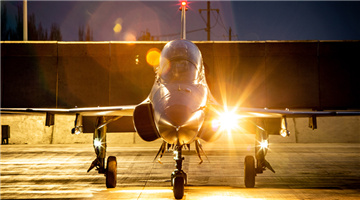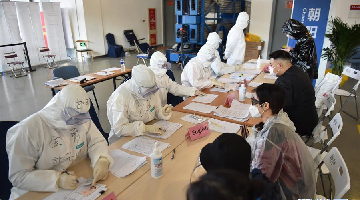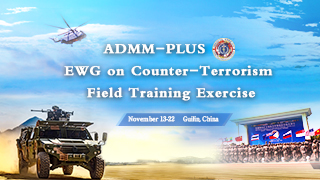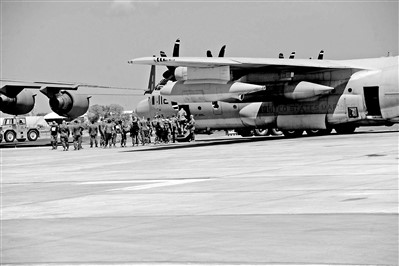
By Fang Chen
Foreign media reported on March 10 that US Army Gen. Stephen J. Townsend, Commander of the US Africa Command (US AFRICOM), said that the US must strengthen its influence in Africa to have an edge over Russia and other countries in their competition in the region. The US Department of Defense (DoD) recently announced that it would deploy the 1st Security Force Assistance Brigade (1st SFAB) to Africa to replace elements of an infantry brigade from the 101st Airborne Division, which will come back for combat training. This move, an important step by the Pentagon to implement the White House’s “new Africa strategy”, has a strong competitive touch featuring the Cold War mindset and has captured close attention of the international community.
US changes Africa strategy by “cutting troops, raising efficiency”, focusing on major-country competition
After Donald Trump assumed office as the new president in 2017, America’s global strategy has shown substantial changes under the “America first” principle. The National Defense Strategy issued in January 2018 concluded that major-country competition is more important than counter-terrorism. It officially named countries including Russia its main rivals and vowed to review America’s combat operations and military investments worldwide according to the latest priorities to cope with the threats to its national interests. Against such a background, America’s Africa strategy has seen dramatic adjustments.
The US put forth the new Africa strategy at the end of 2018, which basically continued the post-Cold War practices of the previous administrations in economy and trade, counter-terrorism and aid, although the containment of Russia’s influence in Africa, instead of counter-terrorism, became the top priority and central goal. When then US National Security Adviser Bolton gave a speech at the Heritage Foundation in December 2018, he said the fast-expanding economic and military influence of countries like Russia in Africa posed a significant threat to US’ national security interests, so countering such threats would be US’s top strategic goal in the region. In May 2019, the US Defense Secretary Mark Esper emphasized that the Pentagon’s top priority is directing its military resources against Russia and other countries.
Guided by this principle, the US claimed that African armies will be the mainstay of anti-terror combats on the continent, while the US and its partners will only provide training, equipment, and consulting services. This means Washington’s anti-terror deployments in Africa will see fewer troops but higher efficiency and shift from tactical support to regional advice, training, and intelligence sharing. It will maintain the military presence in countries like Somali and Djibouti and continue to provide military training and assistant operations for them.
The new US Africa strategy will lead to hindered economic development and worsening security situation in Africa
The new US Africa strategy consists of several parts - economic and trade policies centered on the so-called “Prosper Africa”, aid policies oriented toward value output, and military policies focused on the shift of main anti-terror forces on the African continent. The overall strategy, intended to serve “America first”, is strongly characterized by major-country competition and will exert adverse effects on Africa’s peace and development.
Already standing at a disadvantage in the economic and trade cooperation with the US, Africa will also fall prey to the major-country game. The true purpose of “Prosper Africa” is to “Prosper America through Africa” as the continent can supply massive amounts of natural resources for the superpower, whereas the products supplied by the US may very well be more than what the African market can digest. Meanwhile, to counterbalance Russia’s influence in Africa, the US will provide more aid to African countries located at strategic positions and endowed with strategic resources, so as to reinforce its local influence. The intensified competition between Washington and Moscow in Africa will expose local economic development to many uncertainties.
The adjustment of America’s military policy in Africa will worsen the security situation in the region. In recent years, the extremist organization Islamic State (IS) has begun to move to Africa after losing their camps in Iraq and Syria, and the influx of large numbers of extremists has turned the continent into a high-risk hotbed for terrorism, posing a grave threat to regional security. While African anti-terror forces are already strained, Washington’s adjustment of its Africa strategy is bound to cause security vacuums in the region and aggravate the local security situation, making the so-called “Prosper Africa” plan nothing but “building castles in the air”.
